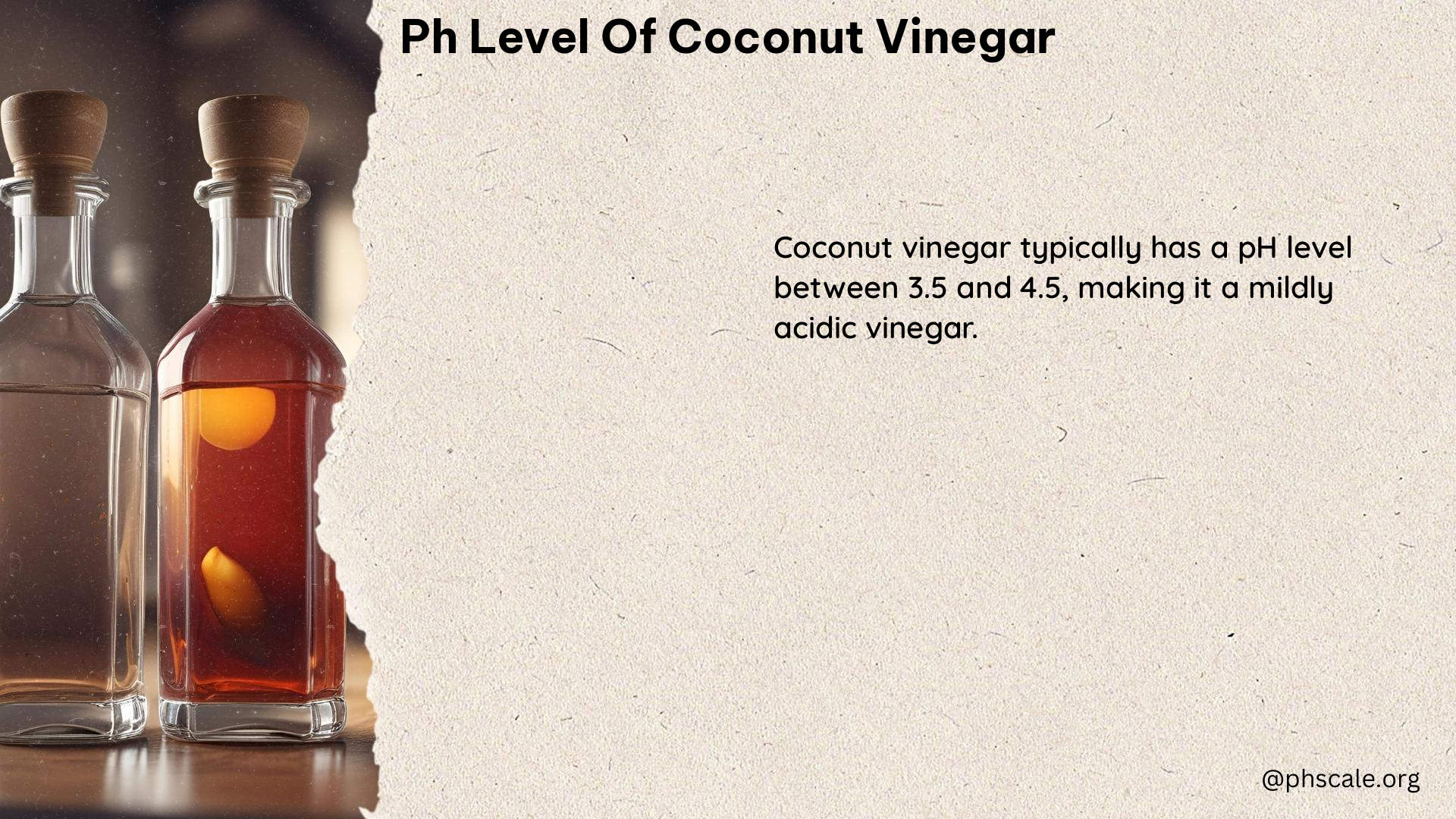The pH level of coconut vinegar typically falls within the range of 3.0 to 3.5, making it slightly acidic. Despite its acidic nature, coconut cider vinegar has an alkalising effect on the body upon digestion, which can help decrease overall acidity of the body. This is due to the acetic acid present in the vinegar, which stimulates processes that decrease acidity in the body.
Understanding the Fermentation Process
Coconut vinegar is made through a natural fermentation process of coconut sap or coconut water, with no preservatives or chemicals added. The fermentation process lasts for 8-12 months, during which the sap or water turns into vinegar naturally. This long fermentation period results in the production of probiotics, beneficial plant compounds called polyphenols, and various vitamins and minerals.
Balancing the Acidity

While coconut vinegar is generally considered safe, it is acidic and consuming it straight up in large amounts may damage the esophagus and teeth. Therefore, it is recommended to dilute it with water or use it in small amounts in salad dressings, marinades, soups, and warm dishes.
To balance the acidity of coconut vinegar, one can consume alkaline foods such as leafy greens, vegetables, and fruits. Additionally, reducing the intake of acid-forming foods such as meat, dairy, and processed foods can help maintain a healthy pH balance in the body.
Comparing pH Levels of Different Vinegars
If you’re concerned about the acidity of coconut vinegar, there are alternative vinegars with different pH levels that you can use. For example, apple cider vinegar has a pH level of around 5, making it less acidic than coconut vinegar. However, it’s important to note that the pH level of vinegar alone may not significantly affect the pH balance in the body, as the body has its own mechanisms to regulate pH levels.
Ensuring Quality and Safety
To ensure the quality and safety of coconut vinegar, it’s important to choose a reputable brand that uses natural fermentation processes and avoids the addition of chemicals or preservatives. Additionally, storing the vinegar in a cool, dark place can help preserve its quality and prevent the growth of harmful bacteria.
Key Takeaways
- Coconut vinegar has a pH level of around 3.0 to 3.5, making it slightly acidic.
- Despite its acidity, coconut vinegar has an alkalising effect on the body upon digestion.
- The long fermentation process results in the production of probiotics, polyphenols, and various vitamins and minerals.
- Consume coconut vinegar in moderation and balance it with alkaline foods to maintain a healthy pH balance.
- Choose a reputable brand and store the vinegar properly to ensure quality and safety.
References:
– Keep your body’s pH balance in check with coconut cider vinegar, Coconut Magic, 2018-05-14, https://coconutmagic.com/blogs/all/keep-your-body-s-ph-balance-in-check-with-coconut-cider-vinegar
– Coconut Sap/toddy Vinegar Production, Philippine Coconut Authority, https://pca.gov.ph/pdf/cocoTech/processingTechnologies_Food/CoconutVinegar.pdf
– 5 Benefits and Uses of Coconut Vinegar – Healthline, Healthline, 2018-12-20, https://www.healthline.com/nutrition/coconut-vinegar
– Novel Coconut Vinegar Attenuates Hepatic and Vascular Oxidative …, NCBI, 2022-03-09, https://www.ncbi.nlm.nih.gov/pmc/articles/PMC8959456/
– 2 pH in coconut water vinegar fermentation broth measuring by pH meter, ResearchGate, https://www.researchgate.net/figure/2-pH-in-coconut-water-vinegar-fermentation-broth-measuring-by-pH-meter_tbl1_303233159
